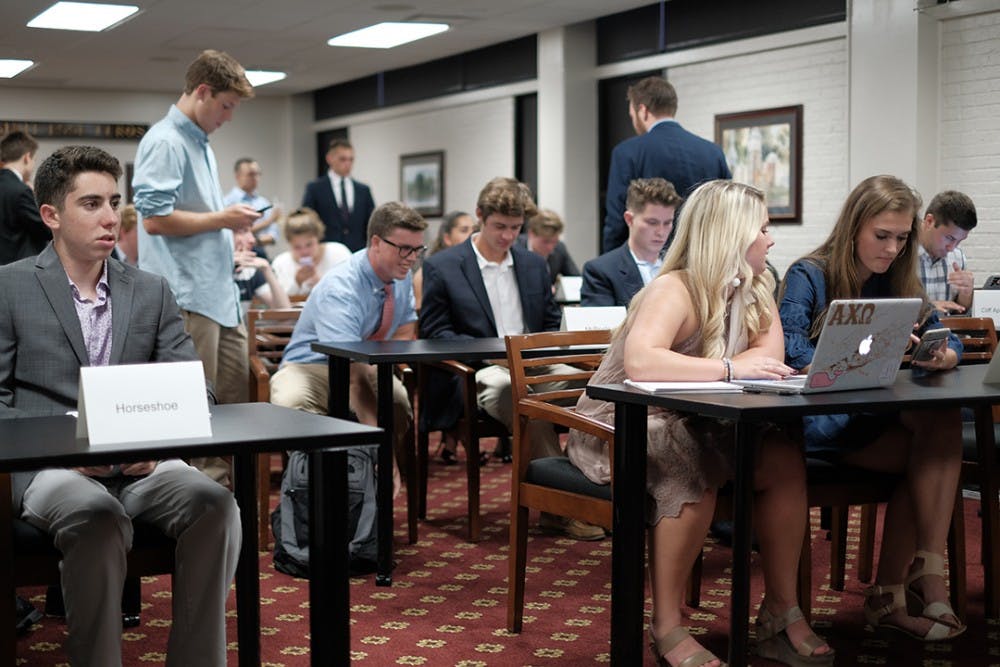It’s a week past the midpoint of the semester, and the Residence Hall Association is starting to kick into gear. Since the beginning of the semester, a potential new constitution and disagreement among executive board members had consumed much of the conversation.
“Any of the stuff that might be happening within the board in terms of conflict and miscommunication and infighting really detracts us from being able to effectively serve our residents and to improve their experience," said Tiffany Conde, the University Housing adviser to RHA.
But the past few weeks have been relatively calm. Treasurer Matthew Warren, who was strongly opposed to the drafted constitution and President Turner Johnson's actions earlier in the semester, said that the organization is now on the right track and communication has improved.
"It did feel like we were a little bit with our pants down," national communications coordinator Dylan Myers said. "I think it just made us reassess the situation and be like, 'OK, we are here for the residents and we need to just all come together and start working for them.'"
And with the executive board working together, changes to the constitution seem less and less likely. Senate and hall governments are carrying on unsure of how, and if, the organization will be changing.
“We don’t even know what our roles are right now,” McBryde Secretary Niral Desai said. “My role, if this goes through, could be completely different.”
This general confusion led to a lack of progress, which the executive board is trying to make up for. The RHA website hasn't been updated since the spring — secretary Cole Davis said he's waiting to hear back from Information Technology, and it should be up to date this week. Only one piece of legislation has been formally proposed. Many of the committees outlined in the constitution have yet to meet, including a committee responsible for distributing $58,000. But, according to Matthews and Myers, they'll be meeting this week.
“It really saddens me so much as someone who benefited so much from RHA," chief officer of sustainability Reaghan Murphy said. "I feel really bad for the freshman who are not benefiting as much as I did and as much as my peers did because we can’t get our act together.”
Murphy's role is to connect the hall EcoReps with hall governments, which she was unable to do for weeks because meeting times and places weren't easily available. Without the website updated, she struggled to find the contacts for the senators and hall presidents.
Some hall governments, while using their own separate funding for hall-specific programming, are waiting to propose senate legislation until the constitutional question is answered. But that answer might be a long time coming.
“There’s all this confusion about what the organization does and how we do it that has really hampered some of the hall governments from being able to provide programming in their halls,” Conde said.
An informal committee of senators tried to propose the constitution drafted by Johnson at the Oct. 2 senate meeting, but were shot down for not following proper legislative procedure. The next week, the proposed constitution was tabled indefinitely. Only one of the members from the informal committee that stood up at the Oct. 2 meeting is also on the formal Constitutional Review Committee, which will be meeting for the first time at some point this week.
At this point, the earliest a different constitution could be adopted is Nov. 6 due to legislative deadlines and debate requirements. Myers said, though, that he thinks the constitutional question is somewhat resolved — at least for the semester.

